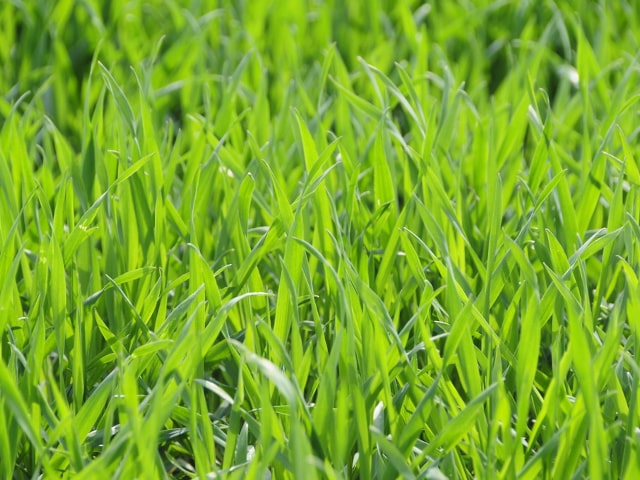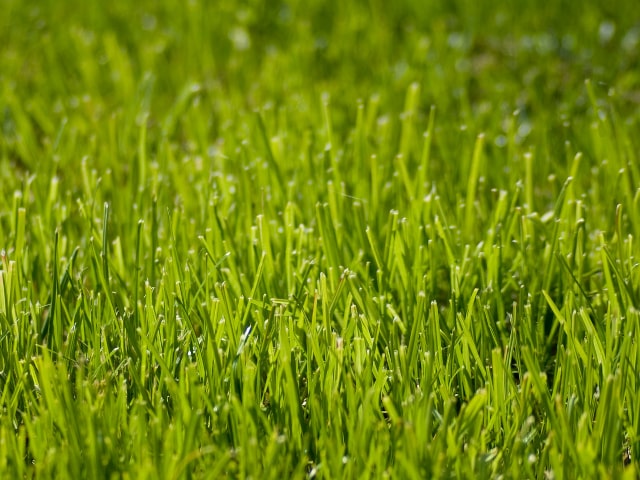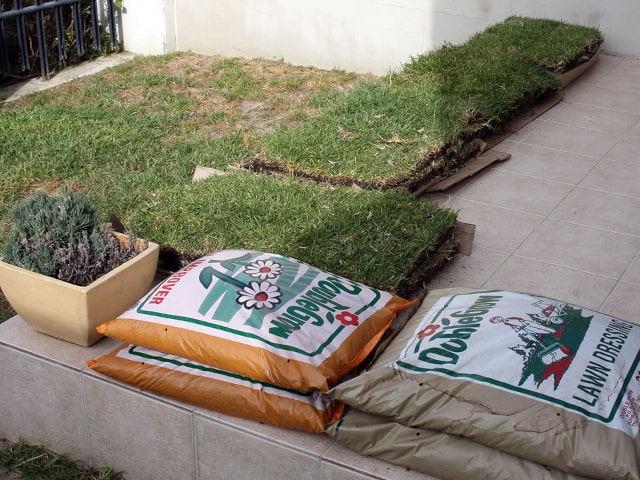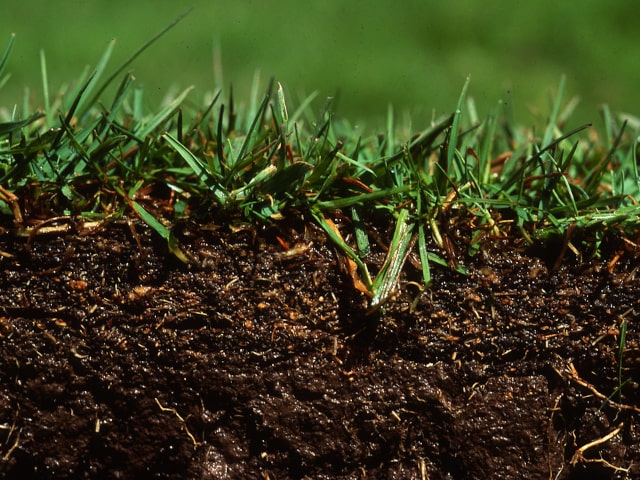
All people wish to have beautiful lawns, but proper lawn care is a long term commitment. It's not unusual for home owners to wish to achieve quick results. Some of them use too much fertilizer in hopes of achieving that lush, green lawn. However, using too much fertilizer to achieve fast results may not be the best tactic. It can bring more harm than good in the long run.
You need to understand that improper application of fertilizer and using too much fertilizer can completely ruin a lawn and bring the opposite result of the desired one. Sometimes, lawn companies and "professionals" are those ruining your lawns with too much fertilizer.
To avoid these problems, you need to understand that lawn care is a long-term commitment. It requires time and you can't achieve good results overnight. You need a carefully made annual programme for fertilization, as well as weed control treatment, moss-control and cultural treatment (such as scarification and cultural treatment).
How to Apply a Fertilizer?
Proper fertilization is one of the keys for a healthy, green lawn. It's therefore important to know how much fertilizer to apply and when. As a general rule, you should apply fertilizer often, but in small amounts. If you feed your lawn regularly but with a small amount of fertilizer, it will easily become green and healthy. However, to get this lush, beautiful lawn, takes months, even a year and more, so don't expect instant results.
Many home owners don't have this patience so they require instant results. This lack of knowledge and a rush for fast and easy fix can lead to many problems. Remember, lawn care product industry and professional lawn care companies both want your money so they will go for this easy fix without worrying about consequences. You don't have this luxury, so you need to worry about your lawn.
One bad way to get this quick fix is to use large amounts of fertilizer high in nitrogen. This treatment will actually result in a green lawn after only a week. It may lead you to believe that said product or lawn care company is doing wonders for your lawn. They aren't.
This approach can bring only short-term results. Such quick results and rapid greening up of the lawn require a fast-acting fertilizer. These type of fertilizers don't last long in the soil. In just a few short weeks your lawn will return back to its previous condition. This may tempt you to re-apply the nitrogen fertilizer to get the green lawn again. If you do it, you will get results in about a week, but the lawn will quickly go back to its original state. So you will apply the fertilizer again. This cycle continues over and over again, and it's very bad for your lawn.
Dangers of Over-Fertilizing
Over-fertilizing is not just costly and, in the long run, ineffective: it can also permanently harm your lawn and bring many bad effects. The main problem with over-fertilizing cycles is that repeated use of high-nitrogen fertilizers are like giving your lawn a drug. Like many drugs, your lawn will become addicted.
When your lawn is addicted to this type of fertilizer, it will need more and more amounts of the nitrogen feed for results to show. Such high amounts of fertilizer will eventually ruin and completely damage your lawn.
Lots of nitrogen will encourage grass to produce lots of leaf growth, which will make the lawn green up. However, this same leaf growth is bad in excessive amounts because it will pose a problem. You will need to cut it more, several times per week. After about a year of this, you will notice your lawn becoming spongy and attracting fungal diseases. This happens because all that leaf growth has decayed into the lawn, creating a thick layer of thatch. Natural organic decomposition process simply can't cope with that. It means it will build up more and more.
Over time, it will create a big mess on your lawn. The only way to fix it is to resort to drastic lawn regeneration work. It will cost you a lot of money and time. All of this can be avoided with a proper fertilization routine.
That's why it's important to know how to fertilize, when and how much. In some cases, a high-nitrogen fertilizer can be beneficial, but it should not be applied freely and at all times. This will only lead to more problems, not to mention you will waste a lot of money. It's best to use balanced, year-round fertilization programme for your lawn to achieve the best and safest results.
Photo credit: Prateek Rungta




0 Comments